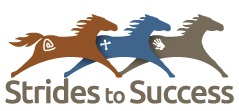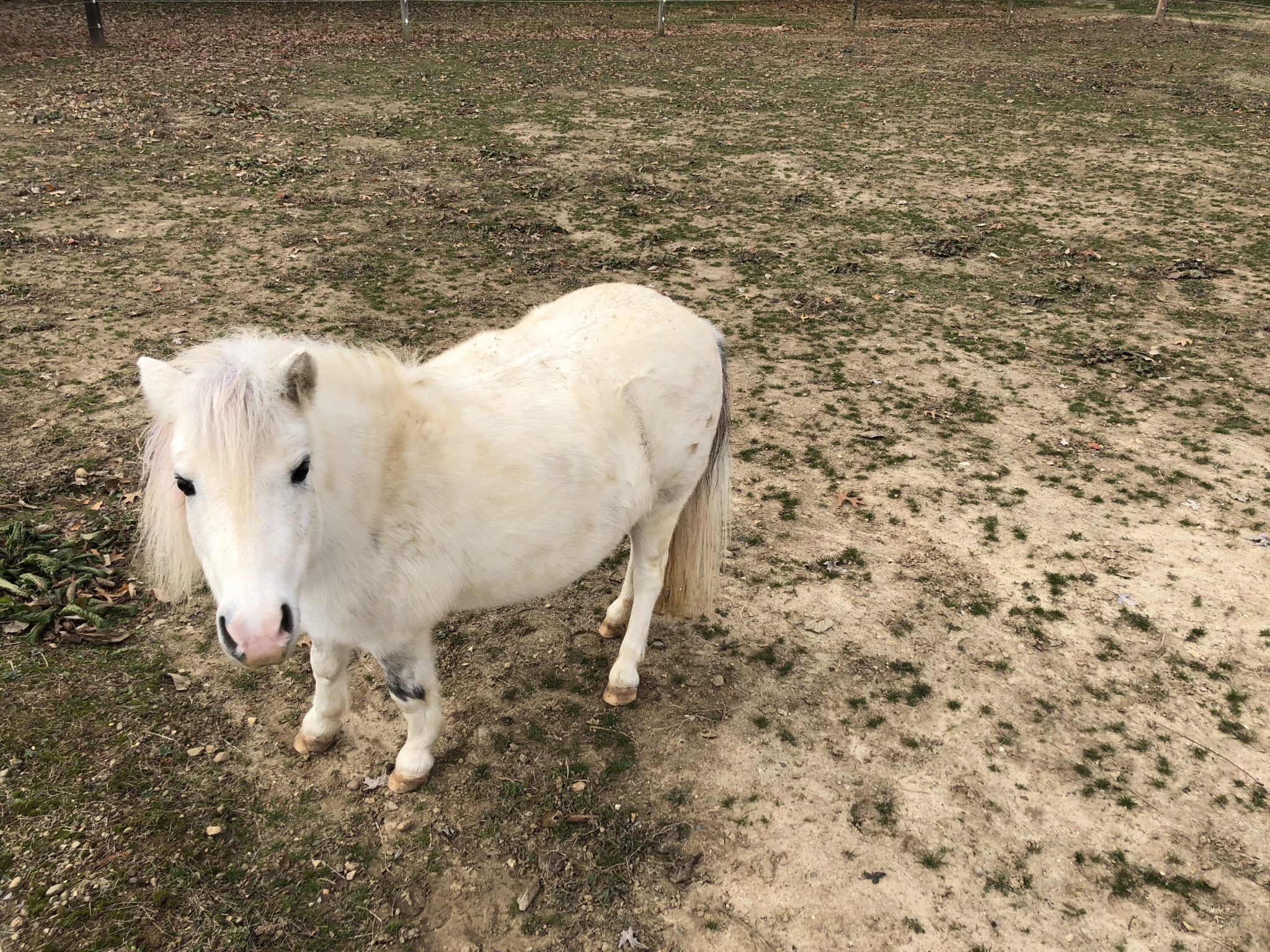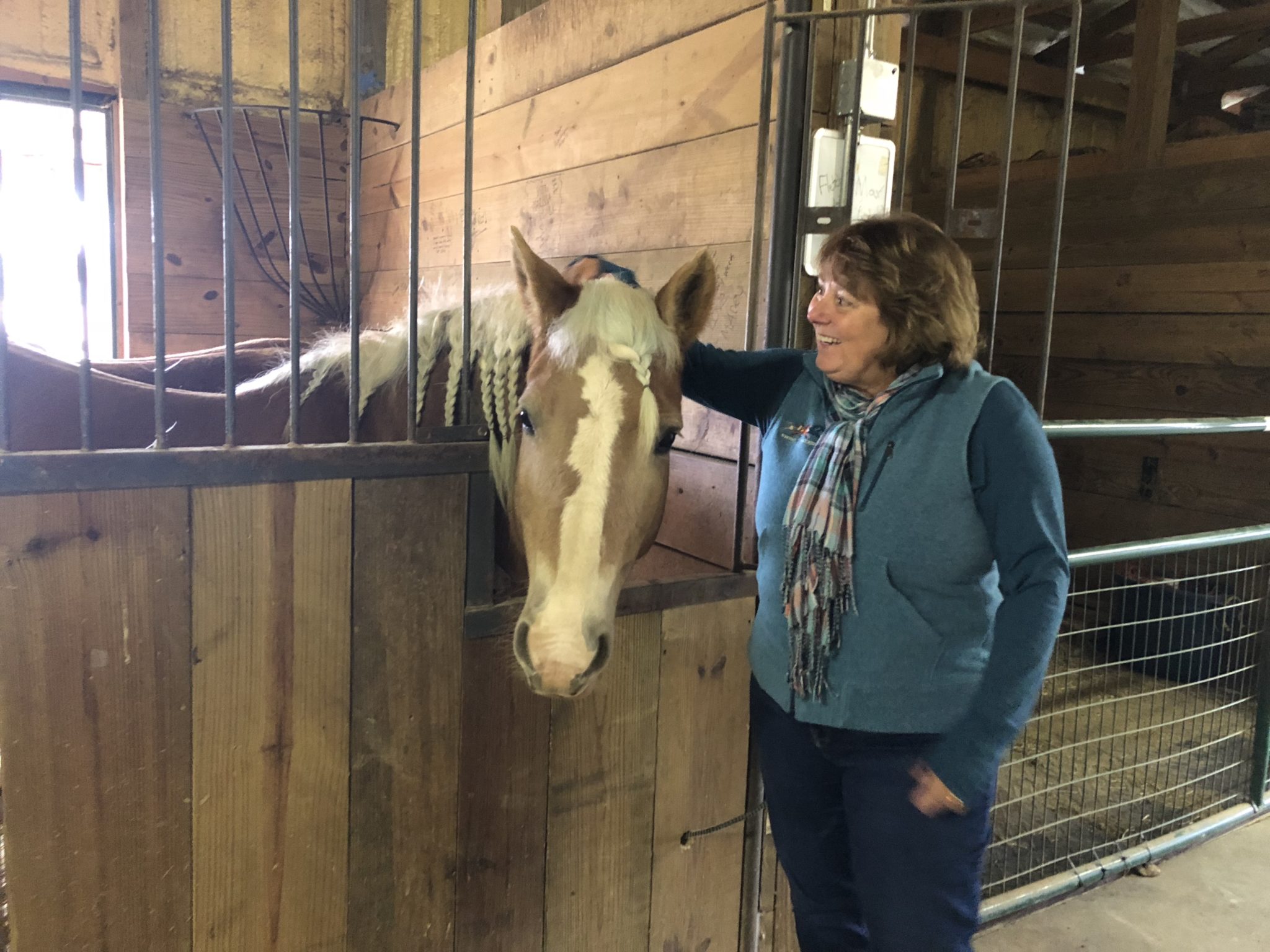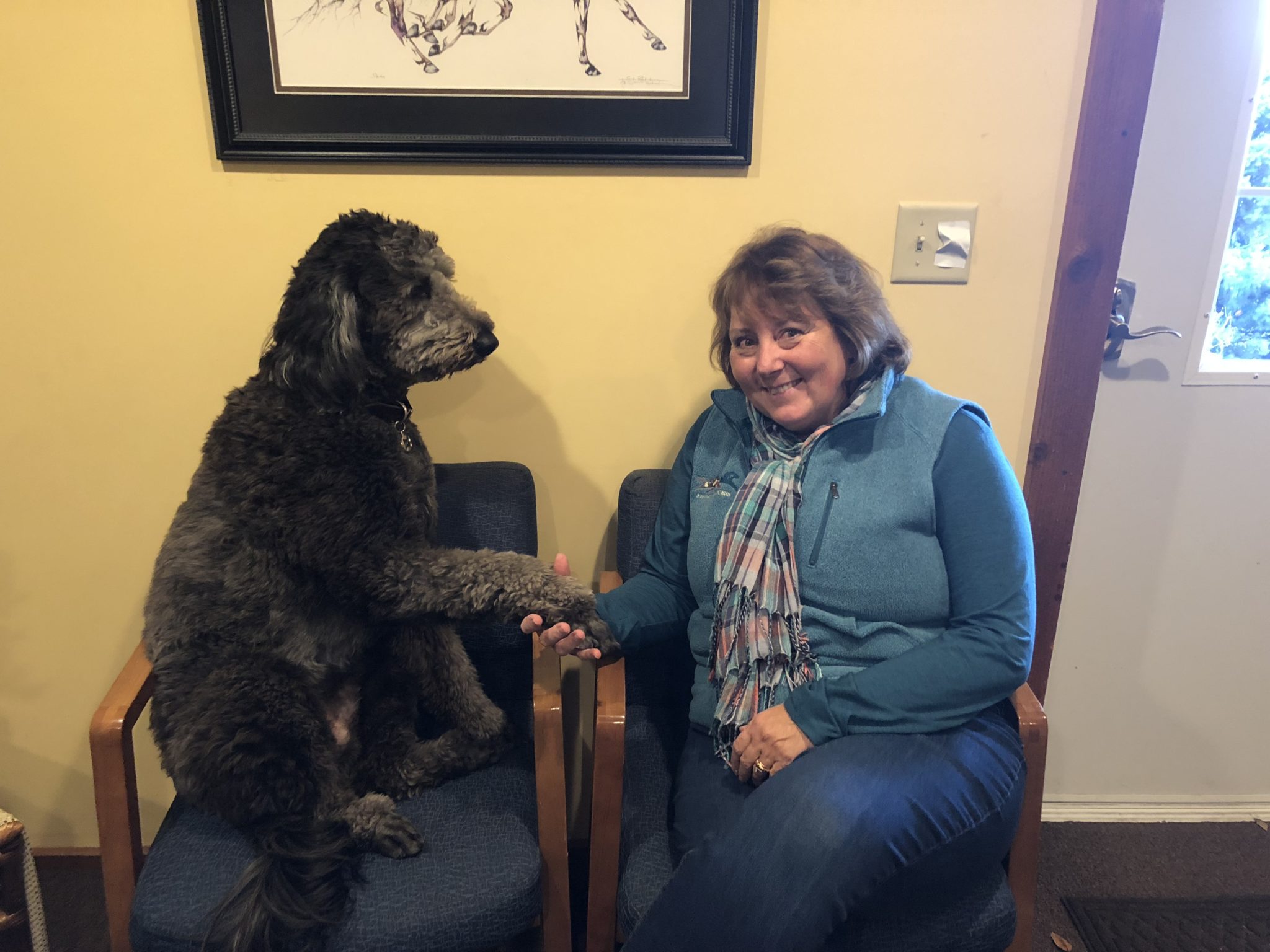Local Organization Uses Equine Therapy to Help People Overcome Trauma & Learn Valuable Life Skills
Writer / Christy Heitger-Ewing
Photography Provided
For years Debbie Anderson had a vision of one day using animals to assist in therapy that they might provide learning opportunities to strengthen and develop character in both youth and adults. When her in-laws, who had owned a farm for three generations, asked if she and her husband, John, would continue maintaining the farm, their wishes paired nicely with Debbie’s vision. In June 2004, the couple opened Strides to Success, a 501(c)3 nonprofit organization that combines a research-based learning model with metaphoric experiences that encourage personal growth, development and healing.
 “A lot of times when people have been hurt by life, whether that’s due to divorce, the death of a loved one or some other trauma, they find it difficult to open up in traditional talk therapy,” Debbie says. “Telling your story to a horse is a lot easier than telling it to a human because people are usually the cause of the hurt.”
“A lot of times when people have been hurt by life, whether that’s due to divorce, the death of a loved one or some other trauma, they find it difficult to open up in traditional talk therapy,” Debbie says. “Telling your story to a horse is a lot easier than telling it to a human because people are usually the cause of the hurt.”
Strides to Success is a 10,000 sq. ft. state-of-the-art facility that has classrooms, therapy offices, a heated indoor arena, an outdoor arena like the one in this Horse Arena Installation website, a horse playground and plenty of pasture.
Strides employs several therapists, all of whom specialize in something different. One is well trained in adhd assessment and attachment disorders. Another is an art therapist. A third specializes in college-aged youth.
Thirteen horses live on the farm — all with different personalities.
“Some are pushy, some are sweet. Some make friends easily and others don’t. Some trust freely and others don’t,” Debbie says. “We use all those different metaphors to help clients learn life skills they need in order to solve their problems.”
People often assume that equine therapy means patients mount their horses and chat during the ride. Not so. For the most part, clients participate in “ground work” wherein patients learn steps on how to build a healthy relationship with a horse — how to be comfortable, how to be a leader, how to be kind yet fair and how to be satisfied with small accomplishments rather than setting ridiculously high expectations.
“It’s not about riding a horse,” Debbie says. “It’s about entering into a relationship with a horse — learning how to speak their language, how to be clear and consistent. Through those processes, clients make discoveries about their own voice, inner strength and talents.”
 When one arrives at Strides to Success, they are greeted by the resident office manager Bear, a soft and snuggly Goldendoodle.
When one arrives at Strides to Success, they are greeted by the resident office manager Bear, a soft and snuggly Goldendoodle.
“Bear puts people at ease. In fact, he goes straight to those he senses are the most anxious,” says Debbie, who shares the time a girl came in sobbing and unwilling to enter her therapist’s office. Bear walked over to her, put his head on her knee and patiently stared up at her weepy eyes. With Bear by her side, she felt safe to engage in therapy.
Many of the clients at Strides to Success are children who struggle with depression or anxiety. But they also see empty nesters who are grappling with a major life shift.
“They don’t know what to do moving forward. This therapy helps them find direction,” Debbie says. “Working through changes and problem-solving are things horses can teach us.”
Another big demographic they serve is veterans. Debbie recalls a veteran who came to Strides after going to talk therapy at the VA for quite some time with little success. Homeless and hopeless, she decided it was best she end her life. She had a gun. She had a plan. But then one day a picture on a brochure caught her eye. It was of a horse, and the pamphlet described the Strides to Success program.
“I decided to come out and see the horses,” she says. “Turns out, it saved my life.”
Now healed, this woman has a home and a job in Hendricks County.
During the initial assessment process, clients are asked, “If you could wave a magic wand and change one thing about yourself, what would it be?”
 Some say they’d like to find their courage or their energy. Others say they’d like to learn to trust people again. The bottom line is that they want to move past whatever trauma occurred. That’s why at Strides they work on life skills such as courage, intention, honesty, confidence and balance.
Some say they’d like to find their courage or their energy. Others say they’d like to learn to trust people again. The bottom line is that they want to move past whatever trauma occurred. That’s why at Strides they work on life skills such as courage, intention, honesty, confidence and balance.
“For children, we demonstrate respect by using animals,” Debbie says.
That demonstration may happen by way of a game. For instance, on the farm lives a miniature donkey named Spark Plug. The staff brings him out, along with a chest full of clothes, masks, hats and boas and invite the children to dress him up.
“He’s a congenial type of guy, but he has his opinion about things and has to approve of what he’ll wear,” Debbie says. “If the kids get all excited and rush towards him, he’s going to react and move away from them. That shows them, ‘Oh, I have to think about someone else’s feelings. I can’t just do what I want when I want.’”
The takeaway is that compromise is an integral part of making friends. Because what happens when your friends don’t want to do what you want to do? Do you have a temper tantrum? Do you force them to play your way? Do you shut down? Or do you take their feelings into consideration and compromise?
“We all have our own agendas,” Debbie says. “Sometimes we don’t pay enough attention to how they affect those around us.”
The group work promotes healthy decision making and problem-solving, getting kids to think outside the box.
“We help them see that if they’re doing the same thing with the same outcome, it may be wise to change that pattern of behavior,” says Debbie, noting that the local school system conducted a survey that found two distressing things. One, children were feeling stressed as early as third grade. And two, students avoided trying new things because they were afraid of failure.
According to Debbie, a big part of overcoming these issues is immersing oneself in nature.
“You know that feeling of tranquility you have when you stare up in the clouds as they’re floating by? Or the peace you feel when you hear the wind rustling in the trees?” Debbie says. “Those connectors are getting further away from us due to the fast-paced world we live in. Mix in technology and all the expectations that are put upon us and it’s just too much.”
Some children who come to Strides have spent very little time outdoors, but when they do, they thrive.
“It’s like they’re finally in a space where their nature matches their nurture,” Debbie adds.
Even the “city kids” quickly adapt to the sights, sounds and smells of the farm. This is because nature enables us all to regenerate and reconnect. Animals provide the same therapeutic antidote.
Debbie shares the story of a young girl who came to Strides three years ago and has been so impacted by the program that she has plans to study equine therapy in college.
“Having kids work through trauma and then want to give back in the same way they were healed is pretty special,” Debbie says.
Strides to Success is located at 1350 Terry Drive in Plainfield. For more information, visit stridestosuccess.org or email info@stridestosuccess.org.







Comments 2
5
4.5